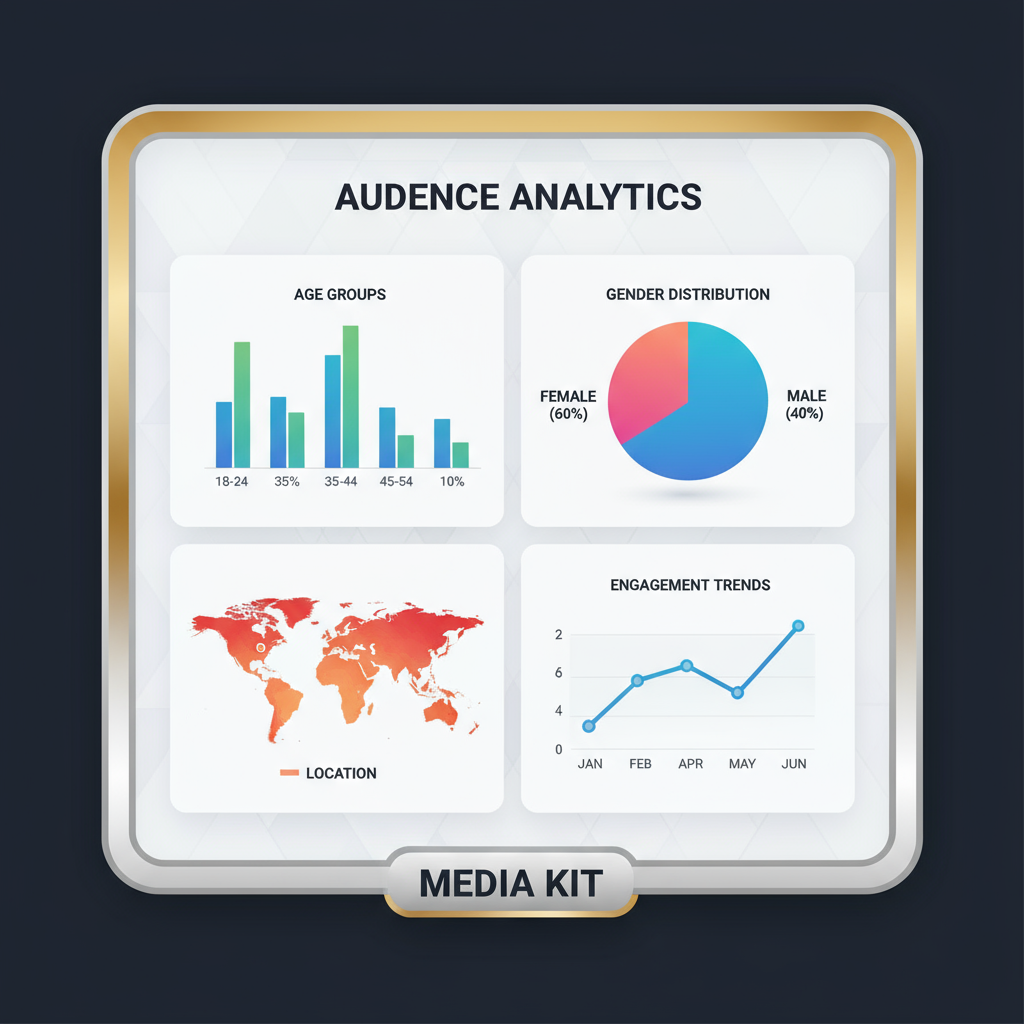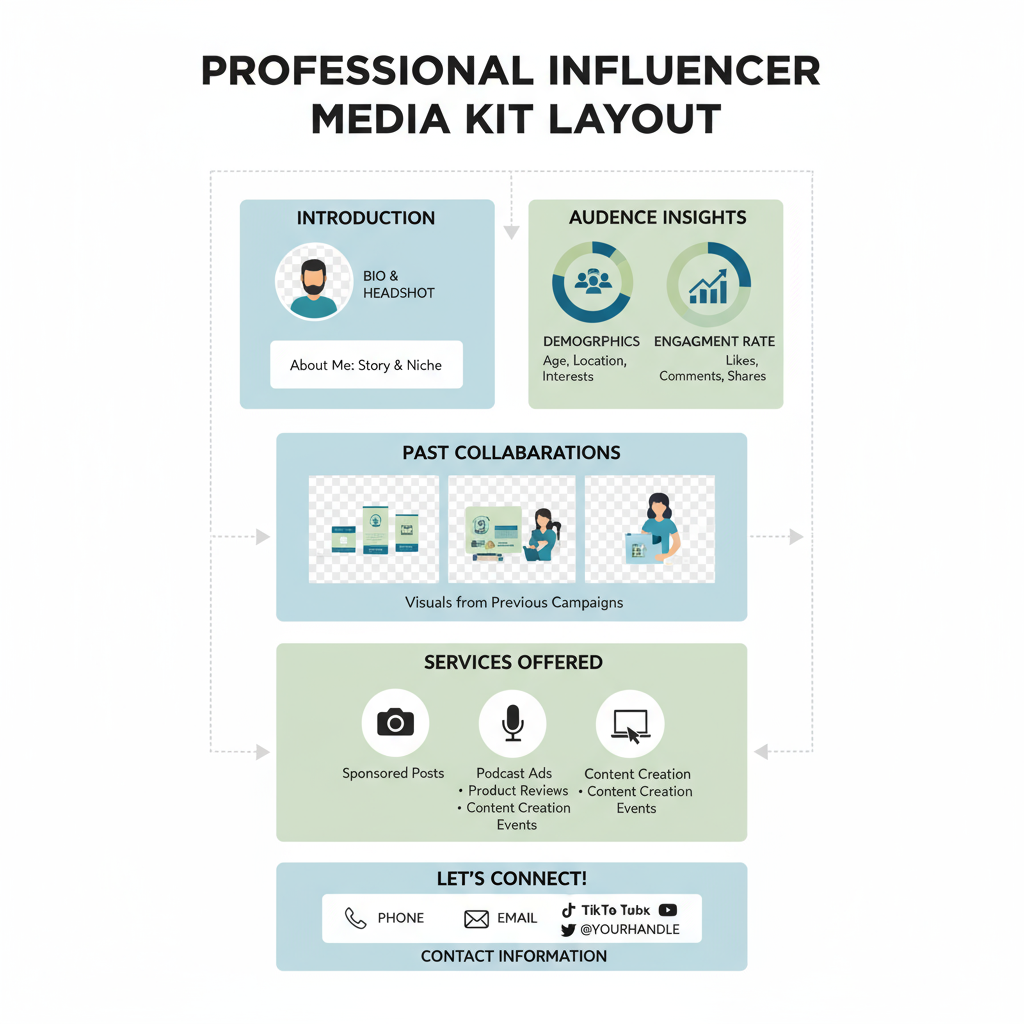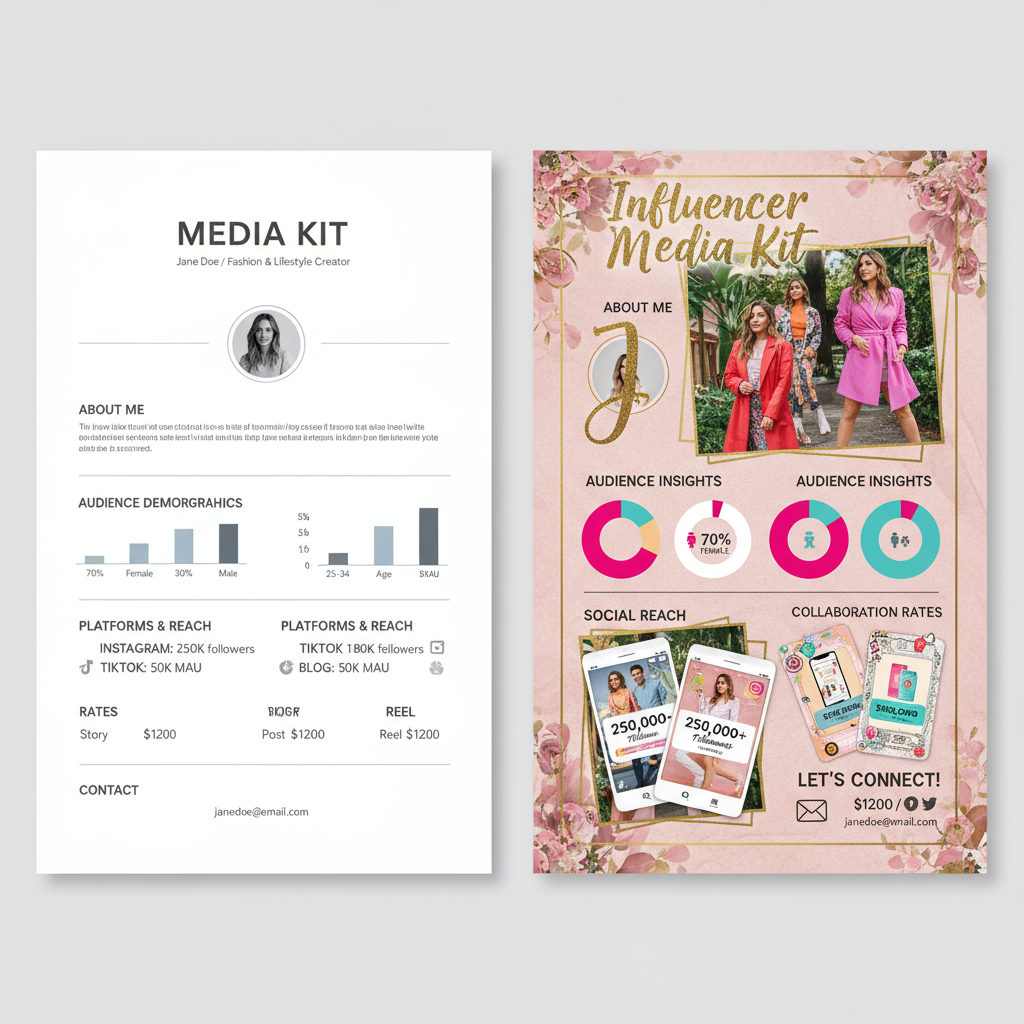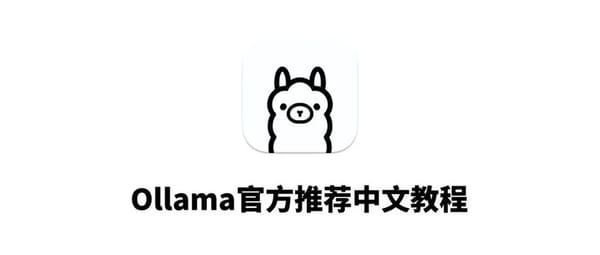Influencer Media Kit Examples and Creation Tips
Learn how to create an effective influencer media kit with key sections, design tips, niche examples, and strategies to attract brand partnerships.

Understanding Influencer Media Kits for Better Brand Collaborations
An influencer media kit is an essential tool in the modern creator economy. This professional document communicates your personal brand story, audience demographics, services, and value proposition to potential collaborators. Essentially, it is part résumé, part portfolio—designed specifically for influencer marketing.
A well-crafted influencer media kit allows you to:
- Differentiate yourself from competitors when pitching to brands.
- Clearly show niche relevance and audience fit.
- Demonstrate professionalism, credibility, and transparency.

When thoughtfully designed, a media kit can increase your chances of securing collaborations, whether you’re a micro-influencer or have millions of followers.
---
Key Sections Every Influencer Media Kit Should Include
Your influencer media kit should cover all relevant details a brand needs to make an informed decision.
1. Bio and Brand Story
Provide a concise, engaging overview of who you are, your niche, and your values. Clearly state your unique selling points.
2. Audience Demographics
Share insights such as follower age range, gender distribution, top countries, and main interests to illustrate audience alignment.
3. Engagement Rates
Include average likes, comments, saves, and shares. Engagement metrics tell brands more about influence quality than follower count alone.
4. Past Collaborations
List recognizable brands, along with results, campaign summaries, or testimonials to demonstrate experience.
5. Services Offered
Detail the types of collaborations you provide—such as sponsored social posts, short-form videos, blog features, and giveaways.
6. Contact Info
Make it easy for brands to contact you with your email, phone (optional), and social handles.
---
Formats and Design Tips for Maximum Impact
The presentation of your influencer media kit is just as important as its content.
- PDF Format: Widely accepted, retains design, easy to email.
- Editable Formats: Canva or Google Slides enable fast updates.
- Consistent Branding: Apply your brand colors, fonts, and tone of voice.
- High-Quality Images: Use professional or high-resolution visuals.

Pro Tip: Keep a clean, spacious layout and lean on visuals over extensive text blocks.
---
Influencer Media Kit Examples by Niche
The design and highlights of a media kit vary by niche. Consider these ideas:
| Niche | Visual Style | Key Elements Highlighted |
|---|---|---|
| Fashion | Minimalist with bold lookbook images | Seasonal trends, styling tips, brand collaborations |
| Travel | Bright, scenic photography | Destination guides, tourism board campaigns, itineraries |
| Fitness | Dynamic action shots | Workout programs, wellness plans, health product partnerships |
| Tech | Clean, modern layouts | Product reviews, tutorials, app promotion case studies |
| Lifestyle | Warm, relatable visuals | Home decor, cooking, daily routines, versatile collaborations |
Customizing style and content for your industry can help your media kit resonate with target brands.
---
Presenting Analytics Effectively
Brands rely on data to decide who to collaborate with. Showcase your metrics clearly:
- Screenshots: Use platform-specific insights to prove authenticity.
- Graphs & Charts: Simplify data digestion with visual representation.
- Third-Party Verification: Tools like HypeAuditor can validate audience quality.
Combining screenshots with visual summaries provides both transparency and professionalism.
---
Showcasing Rates and Packages Professionally
Transparent pricing helps brands quickly assess potential partnerships.
- Flat Rates: Charge per individual deliverable.
- Packages: Offer bundled cross-platform campaigns.
- Tiered Options: Provide Basic, Standard, Premium levels.
If you prefer flexibility, indicate “Rates available upon request” but ensure quick response capability.
---
Common Mistakes to Avoid
Prevent these issues from diminishing your media kit’s impact:
- Outdated Stats: Update quarterly to maintain credibility.
- Text Overload: Focus on concise, scannable content.
- Poor Layout: Avoid design clutter.
- Generic Branding: Reflect your unique identity.
- Missing Call to Action: Directly encourage outreach.
---
Useful Tools and Resources
You can create an attractive influencer media kit with:
- Canva: Ideal for beginners with ready templates.
- Adobe InDesign: For more advanced, custom designs.
- Google Slides / PowerPoint: Easy updates and collaboration.
Bonus: Search for free templates online and adapt them to your brand identity.

---
Maintaining Your Media Kit
Treat your media kit as a living document:
- Update follower and engagement stats regularly.
- Refresh imagery with recent content.
- Add recent collaborations or testimonials.
Monthly or quarterly reviews keep your kit relevant and competitive.
---
Sending Your Media Kit for Maximum Response
Distribution strategy matters:
- Identify Correct Contacts: Reach PR or influencer marketing managers.
- Craft a Personalized Email: Introduce yourself, explain relevance.
- Attach PDF Kit: Keep file size manageable without losing quality.
- Follow Up: Reach out again after a week if no reply.
Personalization and relevance dramatically improve email open and response rates.
---
Summary and Next Steps
An influencer media kit is your brand’s professional handshake in the influencer marketing world. It combines compelling visuals, accurate data, and clear service offerings to position you as a valuable partner. By including essential sections, designing with consistency, showcasing verified metrics, and keeping content fresh, you can unlock more opportunities and form stronger partnerships.
If you’re ready to elevate your influencer pitches, start building or refining your media kit today—brands are looking for creators who present themselves with clarity, style, and credibility.



